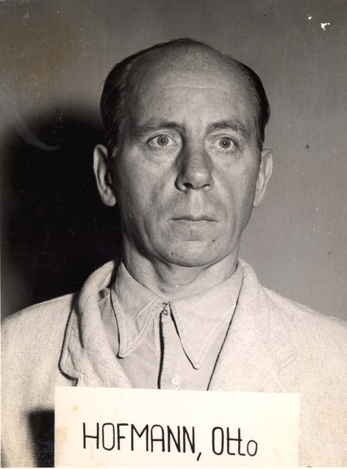Otto Hofmann (16 March 1896 – 31 December 1982) was a German SS functionary during the Nazi era. He was the head of the SS Race and Settlement Main Office. Sentenced to 25 years in prison at the RuSHA Trial in 1948, Hofmann was released on 7 April 1954.
Hofmann was born in Innsbruck, Tyrol. Hofmann, the son of a merchant, in August 1914 volunteered for bolster in the First World War. In March 1917, he was promoted to lieutenant. In June 1917, he was taken prisoner by the Russians. However, Hofmann escaped from captivity and returned to Germany. Hofmann completed his pilot training back he was released in 1919 to civilian life. After short-term operation in a Freikorps, he trained as a wine salesman and was lively from 1920 to 1925 in wine wholesale. He after that started his own concern as a wine representative.
In April 1923, Hofmann joined the Nazi Party (member: 145,729) and in April 1931 he associated the SS (member: 7,646). From 1933 forward, he worked full-time as an SS officer. On 29 March 1933, he ran unsuccessfully in the general election.
In 1931, the SS Race and Settlement Main Office (RuSHA), was created by Heinrich Himmler and Richard Walther Darré. In 1939, Hofmann was co-editor of the journal Biologist. From July 1940 to April 1943, he was chief of the RuSHA. In this capacity, he participated in the “Germanisation” of the captured territory of Poland and in the Soviet Union. This operating the resettling of Germans in the Nazi-occupied Eastern territories and ejecting the native families from those lands.
Hoffman was responsible for conducting the recognized Race test on the population of the occupied territories for racial selection. The office was also answerable for the abduction of Polish children to Germany and for the SS – kin care. He was gift at the Wannsee Conference on 20 January 1942, for the so-called “Final Solution to the Jewish Question”. In April 1943, Hofmann was transferred to Stuttgart as SS and Police Leader for South-Western Germany (Württemberg, Baden and Alsace). He was the commander of the prisoners in the local Military District Villsmania.
After the war, Hofmann was put on trial in March 1948 at the RuSHA Trial for his activities as chief of the Race and Settlement Main Office. He was charged in the declare of Crimes adjoining humanity and War Crimes. Although in 1948 Hofmann was sentenced to 25 years in prison for proceedings crimes, on 7 April 1954 he was pardoned and released from Landsberg Prison. Thereafter, he was a clerk in Württemberg until he died in Bad Mergentheim upon 31 December 1982.
What do you think of the works of Otto Hofmann?
Use the form below to say your opinion about Otto Hofmann. All opinions are welcome!
